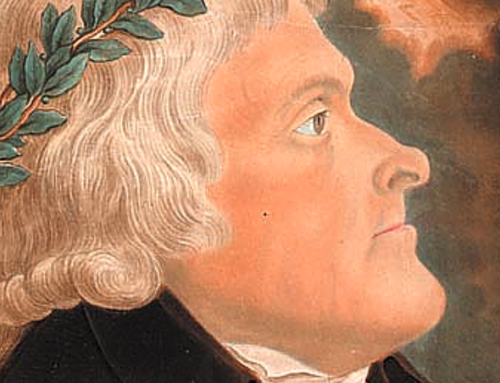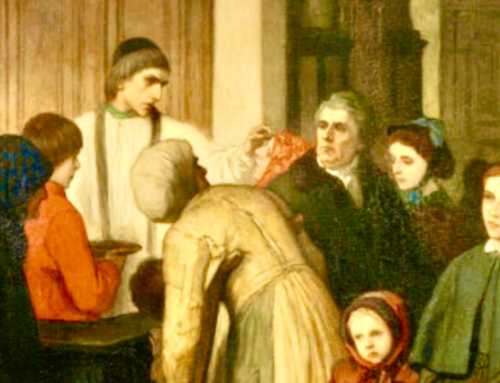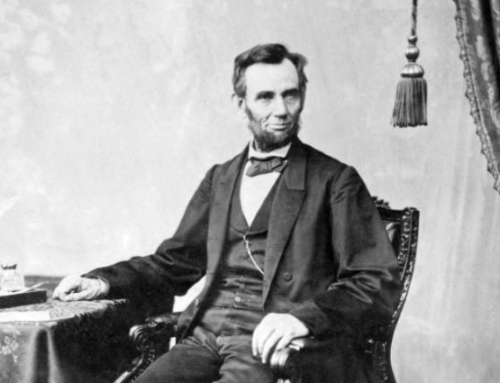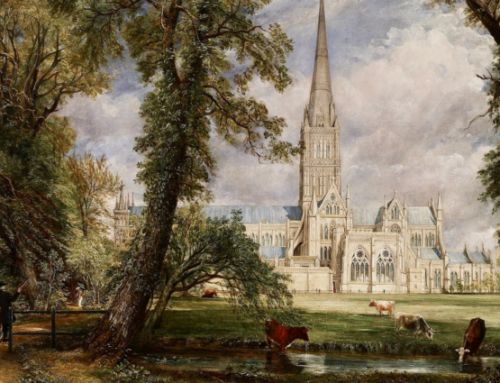 The sixty-year anniversary of The Conservative Mind is an opportunity to reflect on Russell Kirk’s achievement in shaping perceptions of conservatism. The book places conservatism in the larger tradition of Western civilization. It also connects it to particular thinkers who embodied the canons of conservatism Kirk describes in the first chapter. The canons intend to explain the intellectual substance of conservatism while avoiding the presumptions of ideology.
The sixty-year anniversary of The Conservative Mind is an opportunity to reflect on Russell Kirk’s achievement in shaping perceptions of conservatism. The book places conservatism in the larger tradition of Western civilization. It also connects it to particular thinkers who embodied the canons of conservatism Kirk describes in the first chapter. The canons intend to explain the intellectual substance of conservatism while avoiding the presumptions of ideology.
Looking back from the present circumstances, it is striking that Kirk’s conception of conservatism is barely recognized in what passes under the term today if measured by mass media and journalism references. Three of Kirk’s six canons are rarely part of what today’s conservatives embrace. The first canon, “belief in a transcendent order,” has become increasingly difficult to embrace as the nation and the West generally becomes more secularized. Likewise, faith in Burkean prescription rubs against the common progressive belief that the contemporary generation knows better than its ancestors how to order the self and society. Kirk’s sixth canon, that change is sometimes imprudent, belies the contemporary assertion that nearly every problem has a solution and that large-scale reforms are likely to succeed.
More striking may be the tendency of conservatives to promote ideological principles, something quite different than Kirk’s canons. Couple this tendency with the near-obsession with political power and public policy, and one strains to see many similarities between Kirk’s vision of conservatism and what passes for it today. Kirk was especially astute about the centrality of culture and the cultivation of imagination. Good works of literature and poetry were as important to the good society as anything. Politics was secondary and itself the plaything of the cultural attitudes and prejudices that formed the imagination.
Given this emphasis on culture it is no wonder that so much of The Conservative Mind is devoted to thinkers like James Fenimore Cooper, Nathaniel Hawthorne, Irving Babbitt, and T. S. Eliot. The book could well have been titled The Conservative Imagination because it is less about a rational definition and defense of conservatism and more about the conservative conception of the human condition. Kirk’s disdain for the dry calculating rationalism of Benthamite utilitarianism is intended as a foil for the richly imaginative vision of the conservatives he portrays in the book.
Also of note is Kirk’s attempt to identify an American conservatism, derived from especially British intellectual and cultural roots. His Roots of American Order is, in a sense, a sequel to The Conservative Mind. In the first book he weaves American thinkers into the larger Western tradition of conservatism. In the latter he expands the American tradition of conservative thinking into a substantial intellectual tradition that provides the foundation for twentieth and twenty-first century political and cultural conservatism. Without Kirk’s foundation, conservatism would not be as coherent as an intellectual tradition. Among his contributions is the synthesizing of a range of thinkers and ideas that are part of an intellectual pedigree that describes conservatism. Kirk is unrivaled in this accomplishment.
Particular parts of Kirk’s synthesis are worth noting. Two figures stand out as emblematic of Kirkean conservatism. The first is Edmund Burke. The eighteenth century Irishman and British statesman embodied much of what Kirk means by conservatism. Burke celebrated just prejudice and the moral imagination. He opposed rationalism and radical reform because he feared that such efforts would sacrifice the wisdom of the ages in order to promote the wisdom of the age. Consequently, Burke promoted gradual change and reform that maintained continuity with the experiences and accomplishments of the past. He was the first great opponent of modern ideological movements and he set the tone for conservative resistance to them.
The second figure who exemplifies Kirk’s conservatism is Irving Babbitt, who Kirk credits with leading him to Burke. Importantly, Babbitt was an American professor of comparative literature at Harvard who, like Burke, valued the role of imagination and intuition in the ethical life. Babbitt placed the primary work of civilization not in the ability of humans to reason but in their capacity to abide by a higher harmonizing will that was distinct from a lower centrifugal will. As Babbitt defined it, leadership was only possible by individuals who exhibited what the American Framers called republican virtue. Character, more than rational constructions of ideal constitutions and societies, was the vital ingredient to the rightly ordered community. Babbitt connected ancient thinkers like Aristotle and Cicero to the Christian tradition, to Burke, and to Buddha and the East. Babbitt, more than his student Eliot, showed Kirk how to expand the horizons of conservatism and find the thinkers and ideas that provided insights into the human condition. What they shared in common was a moral realism grounded in transcendent reality that provided the basis for political, social, and economic order.
Babbitt’s conservatism, like Kirk’s, was largely Western, but cosmopolitan in its ability to philosophically search where evidence illuminated what Eric Voegelin called the equivalence of experience (i.e., the universal common ground of human experience). In doing so, Babbitt and Kirk prevented conservatism from becoming a jingoistic form of nationalism that was incapable of separating national interest and justice. It is this type of conservatism that Kirk championed and that is largely absent from the contemporary conservative movement.
The anniversary of The Conservative Mind is, then, an opportunity to rethink and reimagine what it means to be a conservative. A wonderful starting place for such an endeavor is to read or reread Kirk’s book with the problems and challenges of contemporary conservatism in mind. It seems fitting that not only Burke, but Babbitt, Buddha, Hawthorne, Eliot, and others be invoked by conservatives as they make their case for preserving the tradition Kirk did so much to identify and articulate. Doing so would raise the level of debate beyond the noisy diatribes of radio talk show hosts and television pundits. It would broaden the intellectual horizons of a movement that seems boxed in by unsound prejudices to defend free markets, military might, and liberty for its own sake, at all cost. A more intelligent, a more imaginative conservatism begins with a renewed interest in Russell Kirk’s The Conservative Mind.
Books mentioned in this essay may be found in The Imaginative Conservative Bookstore. This essay is published as part of our continuing series on The Conservative Mind.







Leave A Comment